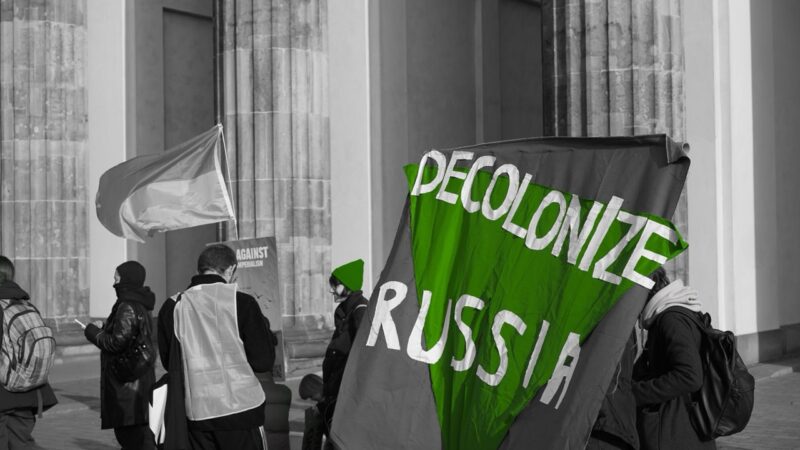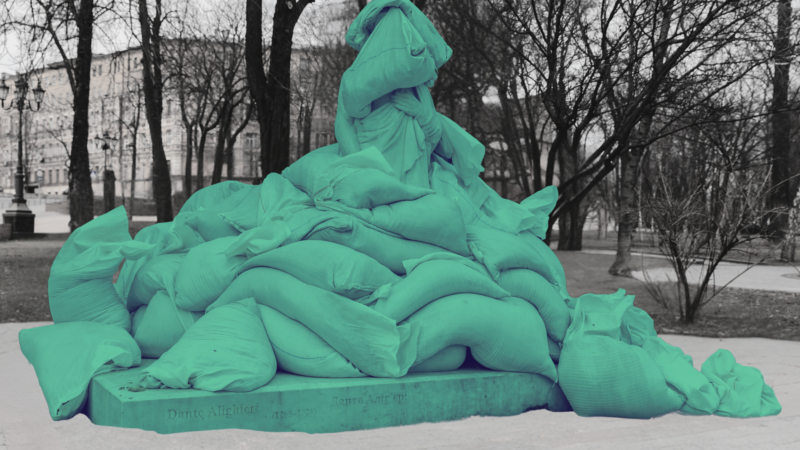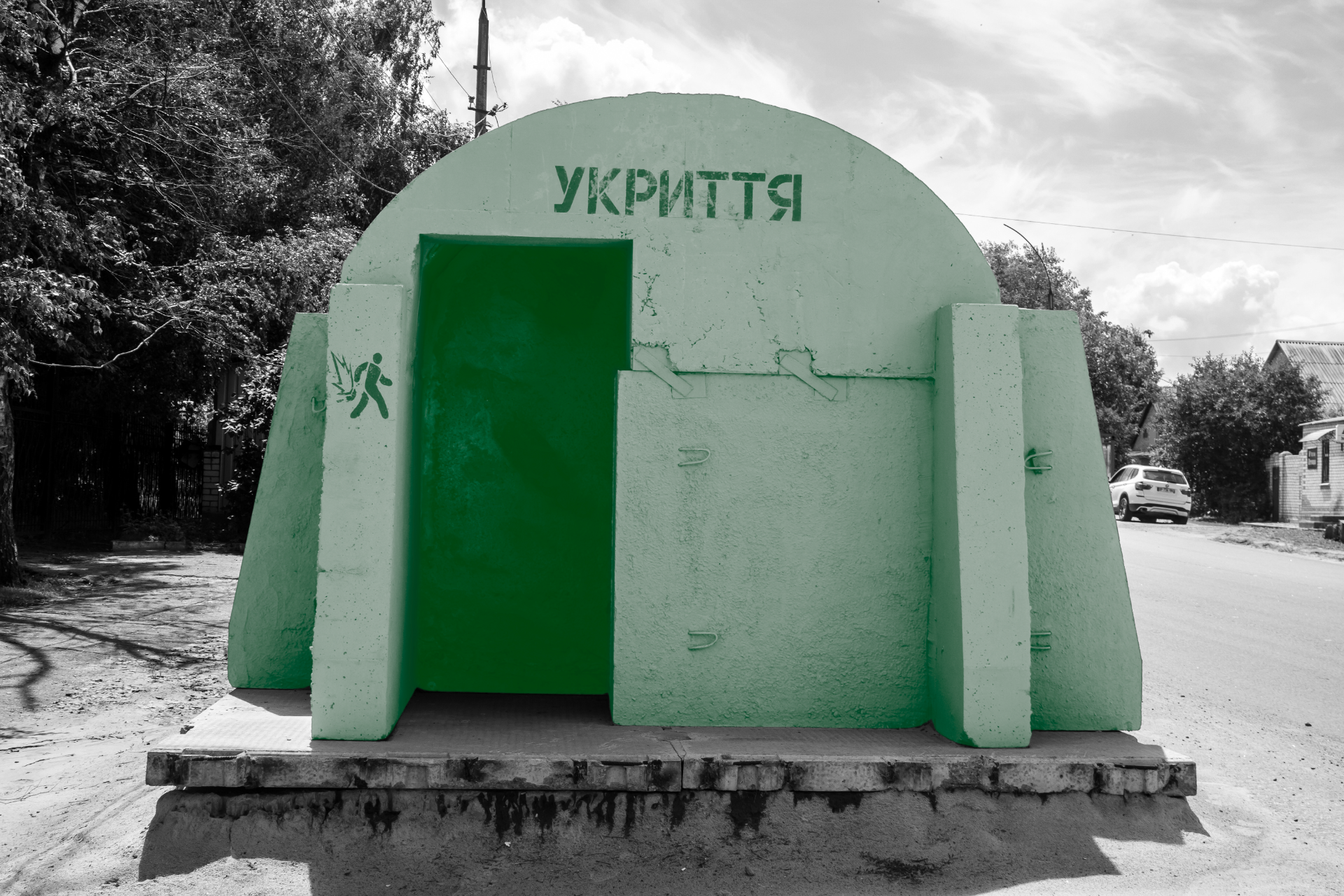Local political processes in Ukraine behind the war: The security risk of expanding Russian influence on the ground

In his first interview with Russian journalists after the escalation of Russia’s invasion of Ukraine on 24 February 2022, the President of Ukraine Volodymyr Zelensky mentioned that he had noticed growing Russian influence at the local level throughout Ukraine in recent years. According to Zelensky, having witnessed his success as president at the national level, Russia switched its strategy to penetrate local political processes in Ukraine by placing pro-Russian local “elites” through which the Kremlin could exert influence.[1]
In February–March 2022, Russian forces succeeded in quickly occupying parts of the southeastern regions of Ukraine. Although a majority of the local residents there by no means welcomed the invaders, as indicated by numerous anti-Russian rallies in the occupied areas, a portion of the local Ukrainian leadership has been observed to be cooperating with the Russians. Such local agents are exploited as useful instruments for effective governance from the perspective of the invaders. Why and how did this situation happen? This short essay presents an explanation of the growing Russian influence at the local level in Ukraine since the Revolution of Dignity (2014) and of the cooperation of local elites with Russian forces since the escalated Russian invasion began on 24 February.
Local political processes before the start of the Russo-Ukrainian War
In the 1990s, governors appointed by Ukrainian presidents dominated local politics while retaining relative autonomy from the country’s capital. President Leonid Kuchma, for example, counted on them for electoral mobilization and maintaining local stability. Later, in the 2000s Viktor Yanukovych’s regime was the first to incorporate numerous local political leaders into a ruling party—the Party of Regions. Members of this party predominated other parties in the provincial legislatures of Ukraine’s southeastern and central oblasts, including Cherkasy, Vinnytsia, and Kirovohrad.
Even though Yanukovych’s regime was toppled in the Revolution of Dignity in 2014, many of the political elites formerly affiliated with the Party of Regions have retained their influence at various levels. In my calculation, of the 185 incumbent deputies to the Verkhovna Rada from the Party of Regions, 44 (23.8%) were re-elected in the 2014 parliamentary elections. Likewise, of the 1,222 incumbent deputies to oblast-level legislatures affiliated with the Party of Regions, 150 (12.3%) retained their seats in the 2015 local elections.[2] President Petro Poroshenko signed the law “On government cleansing” (lustration) in 2014; however, parliamentary deputies who had won so-called “majority” (“first-past-the-post”) districts were exempted.[3] Consequently, hundreds of corrupt and/or Russia-leaning deputies remained in power. Even a new ruling party with the president’s name, the Petro Poroshenko Bloc, recruited many former members of the Party of Regions in order to amplify its influence on local-level political processes.
However, before managing to consolidate his rule with a loyal party, Poroshenko lost the 2019 presidential election to Zelensky. Furthermore, in the parliamentary elections that same year the Servants of the People party, with its name derived from an eponymous popular TV series featuring Zelensky, achieved a landslide victory and secured an absolute majority in the Verkhovna Rada for the first time in the history of post-Soviet independent Ukraine. Nevertheless, this unprecedented victory did not translate into its dominance at local levels of government.
Why? In part, the collapse in 2014 of the governing hierarchy that had been based on the Party of Regions resulted in mayors and local leaders receiving greater autonomy. Moreover, increased fiscal flows to municipalities thanks to decentralization reforms, as well as the declining authority of oblast governors and democratic legitimacy of elected mayors and city council deputies, enabled local political leaders to become less dependent on the central executive.[4] While the national government can control oblast governors, since the president has the right to appoint and dismiss them, in contrast it is difficult for the central authority to intervene in local political processes if mayors enjoy sufficient political and economic authority among their constituency, since mayors are locally elected. Moreover, although the Servants of the People party stressed its anti-establishment freshness as an appealing point, it did not seek to actively recruit incumbent mayors to the party. Consequently, influential mayors in various cities, including oblast capitals, assembled their own parties, and by the 2020 local elections the party system in Ukraine was remarkably fragmented. The locally based parties were strong enough to prevent Zelensky’s “Servants” party from becoming popular on the ground. In the above-mentioned interview Zelensky commented the situation as follows: “You can win [at the national level] and control […] the central power; you have authority which people gave to you in legitimate and fair elections. But, at the local level, you can resolve nothing. You can implement reforms but they simply do not reach there. […] You cannot reach the regions, because everything is simply blocked there.”[5]
Zelensky’s party’s performance in the local elections held from October to December 2020 was not reminiscent of its success in the previous year. Servants of the People secured the highest numbers of seats in only 4 of 21 oblast legislatures (Dnipropetrovsk, Zhytomyr, Sumy, and Chernihiv), and no city councils were dominated by this party. Capitalizing on the struggles of the nationally ruling party, Russia intensified efforts to extend its influence over Ukraine’s regions. On the eve of the election day, several experts warned that Russian business elites tried to “push their people” (provesty svoїkh liudei) into local Ukrainian councils. In addition, Russia supported the Opposition Platform for Life party (OPZZh), the successor to the Party of Regions, by disseminating information in favour of that party in the media.[6] The “Regionaly” succeeded in holding the highest number of seats in four southeastern oblasts (Kherson, Mykolaiv, Odesa, and Zaporizhia).[7] In Zaporizhia oblast, 203 OPZZh deputies (26.9% of the total) secured seats in the oblast, district (county), and city legislatures; their seats exceeded the number possessed by any other competitive party.[8]
The party’s ratings also indicate the growing relative influence of the openly pro-Russian OPZZh. In the three years after Zelensky won the Ukrainian presidency, the ratings of the Servants of the People party gradually declined. On the other hand, the OPZZh maintained its position as the second or third most influential party in that period. At the end of 2020 and beginning of 2021, the OPZZh even temporarily led, ahead of the Servants of the People. Thus, the political elites in the Ukrainian central government were made to feel security threats from the expansion of the influence of the OPZZh and Russia.
In February 2021 President Zelensky signed an order sanctioning several deputies in the Verkhovna Rada who were strongly tied to Russia by prohibiting three television channels that were controlled by them. Several other pro-Russian media outlets were also banned, one by one, by the end of that year. While they admitted that there were legitimate security concerns over pro-Russian disinformation disseminated by those media companies, officials of the European Commission and the United Nations criticized the authoritarian sanctioning measure, which violated freedom of expression.[9] As tensions between Russia and Ukraine ratcheted up, Zelensky’s executive strengthened its lawful measures against Ukraine’s pro-Russian political elites.
The Russian invasion and local Ukrainian collaborators
The ferocious Ukrainian defense of Kyiv was able to convert to a counteroffensive and ultimately repel the Russians back in the northern direction. On the other hand, Russian forces advanced quickly on Ukraine’s southern front, and in March almost all of the territory of Kherson oblast and the southern part of Zaporizhia oblast fell into the hands of the invaders. Originally, the Russian occupiers thought that they would be welcomed by the Ukrainian population and could establish cooperative relationships with local leaders. However, it quickly turned out that a majority of local residents and elites refused to support Russia’s occupation. Local Ukrainians courageously organized protest rallies against the invasion, and many local leaders rejected Russian proposals of “cooperation.” The Kremlin and Russian military headquarters apparently overestimated the pro-Russian mood among residents in the regions.[10] In this difficult situation, the Russians needed to rapidly establish new administrations that fell into line with the directions of the occupying forces.
Although plenty of local officials did not cooperate with the Russians, several local leaders began to and tried organizing alternative local authorities.[11] The Russian forces in the Donbas appointed pro-Russian local agents as “new mayors”—including in Melitpol, Zaporizhia oblast, and Mariupol, Donetsk oblast. The “acting mayor of Melitopol,” Halyna Danylchenko, served as the people’s deputy from the Opposition Bloc in the city legislature before the invasion;[12] and the “head of the Mariupol City Administration,” Kostiantyn Ivashchenko, was a member of the OPZZh. Actually, numerous pro-Russian activists who supported the Russian invasion in the region had ties with the OPZZh.[13]
As the most striking case, the Russian occupiers appointed Volodymyr Saldo as the “governor of Kherson oblast” on 26 April 2022.[14] Saldo was a long-serving mayor of Kherson, from 2002 to 2012; then in 2012 he was elected as a people’s deputy to the Verkhovna Rada of Ukraine. Despite his close ties with the Party of Regions, Saldo’s popularity did not wane even after the party collapsed. His business group, which controls the construction market in the region, closely cooperated with OPZZh members who developed a strong economic presence in the region.[15] In the 2015 and 2020 mayoral elections, Saldo advanced to run-off votes. Also, in 2020, a party with his name, the Volodymyr Saldo Bloc, succeeded in electing deputies to the Kherson oblast and city councils.[16] It was reported that a city council deputy affiliated with this party sought to initiate negotiations with the Russian forces about overthrowing the city government on 5 March 2022.[17]
The aforementioned collaborators (Saldo, Danylchenko, and Ivashchenko) had also been affiliated with the Party of Regions in the past. The presence of former members of the Party of Regions at the local level constitutes a grave security risk in the times of the Russo-Ukrainian War. On 20 March 2022 Zelensky signed a decree prepared by the National Security Council of Ukraine to prohibit the activities of eleven pro-Russian political parties, including the OPZZh and Volodymyr Saldo Bloc, during the war.[18] This measure curtailed the activities of pro-Russian elites in Ukraine at the national level. Currently, the prosecutor-general’s office is attempting to deal with the cases of dozens of collaborators in territories recaptured by the Armed Forces of Ukraine.[19] Although it is understandable why these measures are now needed beyond emotional cause, it remains unclear what effect they will have in the future.
Conclusion
In the last decade Ukraine has been confronting the serious problem of expansion of Russian influence through local pro-Russian elites. It appears that these leaders enjoy popularity and support among local populations. Several institutional changes implementing the ongoing decentralization reforms have empowered local leaders and increased their autonomy from the central government. Presidents Poroshenko and Zelensky failed to find common ground with them and introduce national political trends at the local level, despite the admitted security risk in this domain. Taking advantage of this circumstance, the Kremlin gradually increased its influence at the local level through co-opting local leaders as well as disseminating pro-Russian propaganda. After the beginning of the full-scale invasion, a number of these local elites began to actively cooperate with the Russian forces and adjusted local systems of governance to Russian standards. They became the building blocks for the “new administrations” installed by the Russian occupiers.
Autonomy of local governments is a norm espoused by European countries, including Ukraine. It has become clear, however, that in the time of the Russo-Ukrainian War, local elites with clear Russian sympathies in the past pose a threat to the integrity of the Ukrainian state. Many cases have been observed of local collaborators with Russian forces, and in response Zelensky’s executive has implemented several preventive measures. Nonetheless, the most urgent objective remains ending the war and recovering the state integrity of Ukraine.
After the ceasefire, the Ukrainian government will face a tough problem: it will need to curtail Russian influence at regional levels and in local political processes while assuring compliance with democratic principles.
Disclaimer: This manuscript was prepared on 13 May 2022. Since the situation is rapidly changing, please note that the discussion in this manuscript can draw only tentative conclusions.
[1] “‘It’s not just a war; it’s much worse’: Interview of [Volodymyr] Zelensky by Ivan Kolpakov, Mikhail Zygar, Tikhon Dzyadko, and Vladimir Solovev of Kommersant,” Meduza, 28 March 2022 (title given in translation; video has English subtitles). https://meduza.io/feature/2022/03/27/eto-ne-prosto-voyna-vse-gorazdo-huzhe?fbclid=IwAR0erHOw5cFLer6dCXM7Tyiw1Utyg4wa-ZlmXlxdrhSbG7p3THmA0kmLwxI
[2] Masatomo Torikai, “Remnants of the ancien régime: Renomination and re-election of former members of a demised ruling party in Ukraine,” Democratization, forthcoming. https://doi.org/10.1080/13510347.2022.2039127
[3] Yuliya Zabyelina, “Lustration beyond decommunization: Responding to the crimes of the powerful in Post-Euromaidan Ukraine,” State Crime Journal 6, no. 1 (2017): 55–78. https://doi.org/10.13169/statecrime.6.1.0055
[4] For a detailed analysis, see the forthcoming article by Masatomo Torikai “Growing localization and fragmentation of patronal politics: Ukrainian local elections since 2010,” Eurasian Geography and Economics, https://doi.org/10.1080/15387216.2021.1996255
[5] “‘It’s not just a war; it’s much worse’: Interview of [Volodymyr] Zelensky by Ivan Kolpakov, Mikhail Zygar, Tikhon Dzyadko, and Vladimir Solovev of Kommersant,” Meduza, 28 March 2022 (title given in translation; video has English subtitles). https://meduza.io/feature/2022/03/27/eto-ne-prosto-voyna-vse-gorazdo-huzhe?fbclid=IwAR0erHOw5cFLer6dCXM7Tyiw1Utyg4wa-ZlmXlxdrhSbG7p3THmA0kmLwxI
[6] “Experts described, how Russia is influencing local elections in Ukraine,” UNIAN, 18 September 2020 (title given in translation; article text is in Ukrainian). https://www.unian.ua/elections/yak-rosiya-chinit-vpliv-na-miscevi-vibori-v-ukrajini-11151602.html
[7] “Who won the elections in your city and oblast: Lists,” BBC, 11 November 2020 (title given in translation; article text is in Ukrainian). https://www.bbc.com/ukrainian/features-54874797. In retrospect, all of these four oblasts are strategically important during the present war.
[8] “OPZZh in Zaporizhia: 203 deputies, 11 mayors and top council officials,” Zaporizhia Investigation Centre, 15 December 2020 (title given in translation; article text is in Ukrainian). https://incentre.zp.ua/opzzh-u-zaporizhzhi-203-deputati-11-goliv-ta-pershi-misczya-u-radah/
[9] “Freedom in the World 2021: Ukraine.” Freedom House. https://freedomhouse.org/country/ukraine/freedom-world/2021; “UN on the prohibition of ‘Medvedchuk’s channels’: This decision could affect freedom of expression in Ukraine,” Radio Svoboda, 11 March 2021 (title given in translation; article text is in Ukrainian). https://www.radiosvoboda.org/a/news-kanaly-medvedchuka/31145169.html
[10] “‘We’re living a nightmare’: Life in Russian-occupied southern Ukraine.” The Guardian, https://www.theguardian.com/world/2022/mar/14/were-living-a-nightmare-life-in-russian-occupied-southern-ukraine
[11] This BBC article describes how local political elites have responded to the Russian forces in occupied cities in the southeastern part of Ukraine. “Who is appointed by Russia to govern in the occupied territories of Ukraine,” BBC, 1 April 2022 (title given in translation; article text is in Ukrainian). https://www.bbc.com/ukrainian/features-60952640
[12] “Appointed by Russian armies ‘Melitopol Mayor’ Danilchenko was never in the OPZZH; she is from the Opposition Bloc [party],” Ukraїns’ki novyny, 13 March 2022 (title given in translation; article text is in Ukrainian). https://ukranews.com/news/840904-postavlennaya-russkimi-vojskami-mer-melitopolya-danilchenko-nikogda-ne-byla-v-opzzh-ona-iz-oppobloka
[13] For example, a deputy on the Izium city council (Kharkiv oblast) from the OPZZh gave the Russian invaders information about an undefended road to lead them into the city. “Izium deputy from OPZZh led occupiers into the city: city councilor,” Ukraїns’ka pravda, 30 March 2022 (title given in translation; article text is in Ukrainian). https://www.pravda.com.ua/news/2022/03/30/7335705/
[14] “Kherson: Occupiers appoint their ‘oblast governor’ and ‘mayor,’” Ukraїns’ka pravda, 26 April 2022 (title given in translation; article text is in Ukrainian). https://www.pravda.com.ua/news/2022/04/26/7342209/
[15] “Local elections 2020: Country all fixed up – Kherson,” Dzerkalo tyzhnia (title given in translation; article text is in Ukrainian). https://zn.ua/project/miscevivybory2020/kherson
[16] The party elected five deputies to oblast legislatures (7.8%) and nine to city councils (16.7%).
[17] “In Kherson, city councilor [Ihor] Semenchev allegedly negotiating with Russians to chair the city: He himself denies it,” Babel’, 5 March 2022 (title given in translation; article text is in Russian). https://babel.ua/ru/news/77203-v-hersone-deputat-gorsoveta-igor-semenchev-vedet-peregovory-s-rossiyanami-chtoby-vozglavit-gorod
[18] “Prohibition of OPZZh and 10 other parties: Is the [National Security Council] decision lawful and what will happen to political forces after the war,” Suspil’ne, 20 March 2022 (title given in translation; article text is in Ukrainian). https://suspilne.media/219696-zaborona-opzz-ta-se-10-partij-ci-zakonne-risenna-rnbo-ta-so-bude-z-politsilami-pisla-vijni/
[19] The reeve of Staryi Saltiv (Kharkiv oblast) was suspected of treason after the town was taken back by the Ukrainian army. “Kharkiv region: Staryi Saltiv reeve indicted on state treason charges,” Ukraїns’ka pravda, 7 May 2022 (title given in translation; article text is in Ukrainian). https://www.pravda.com.ua/news/2022/05/7/7344745/





